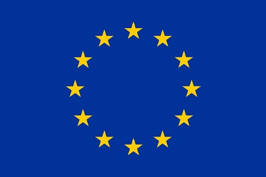Objectives: The use of medications is the most frequent healthcare intervention. In old age, the frequent use of multiple medications often leads to inappropriate or suboptimal prescribing, which has many negative consequences, such as worsening functional and clinical status, reducing the quality of life, increasing the risk of hospital admissions and increasing morbidity and mortality. By using ageism as a conceptual perspective, this project has examined the prevalence and determinants of potentially inappropriate prescribing in older persons, the availability of high-risk medications for older patients in pharmaceutical markets of several European countries and the availability of medication-safety and medication management services for older patients (on local, national and international levels).
Results: We have developed policy recommendations (in a policy report and a policy brief) about the root causes, forms, manifestations, and consequences of ageism in medication use. We also developed recommendations on how to avoid ageism in this area. These recommendations could be applied both nationally and internationally, both in the EU and non-EU countries. We have also analyzed the availability of high-risk medications for older adults in several countries and the prevalence of potentially inappropriate geriatric prescribing in Central and Eastern Europe. We are currently analyzing the prospective study data from several countries to describe the risk factors contributing to inappropriate prescribing in older patients. Many risk factors identified in preliminary analyses may directly or indirectly be linked to aspects of ageism. Preliminary results showed that inappropriate prescribing in older patients is a highly prevalent phenomenon, and strategies and interventions aiming to reduce ageist thoughts, attitudes and practices of healthcare professionals, patients and their carers related to medication use should be further explored and resolved by appropriate measures at micro-, meso- and macro-levels in the near future. In order to inform healthcare professionals and researchers about the preliminary findings of ESR 7 research works and about the EuroAgeism H2020 project, we organized Discussion Day “Inappropriate prescribing in older adults in Europe and developing countries and availability of clinical pharmacy services for older patients in different settings of care” as an affiliated event to the 3rd EuroAgeism H2020 Prague Training School (due to COVID-19 pandemic it was an online event). In the Abstract Book, we summarized presentations of invited speakers from several European and two developing countries (Ethiopia and India). Invited speakers described their countries’ situations regarding population aging, inappropriate geriatric prescribing, and the current availability of clinical pharmacy services and medication safety and medication management services for older adults. This event was attended by researchers, clinicians, students, policymakers and representatives of professional organizations from various countries (including representatives of the ESCP – European Society of Clinical Pharmacy). The open sessions of both events – the EuroAgeism H2020 Training School and the Discussion Day were attended by 139 participants outside the EuroAgeism ITN. Participants were from 5 different continents: 34 European, 5 Asian, 3 North and Central American, and 2 African countries.
Secondment(s)(Months), co-Supervisors: AGE Platform Europe (4m), Dr. Georgantzi; UNECE (2m), Vitalija Gaucaite Wittich. The first secondment was geared to improve the visibility of the topic and to enhance its transferability to policy and planning. The second secondment was aimed towards gaining knowledge on translating research into policy.







